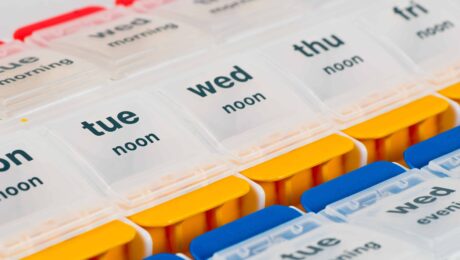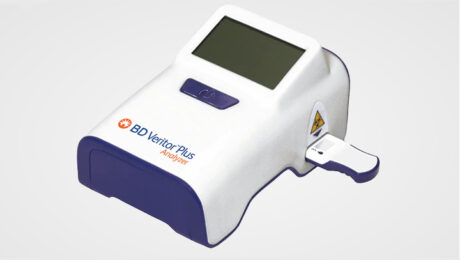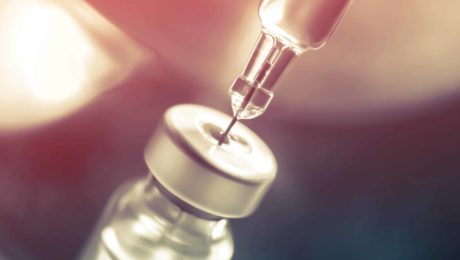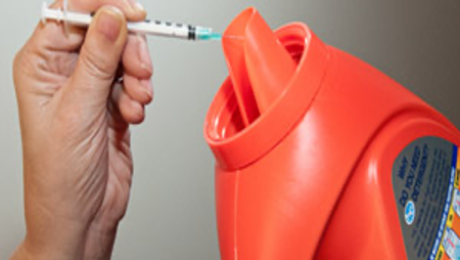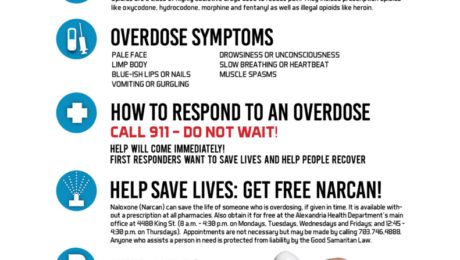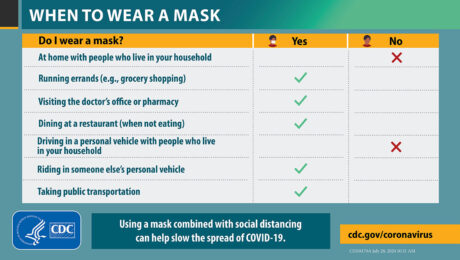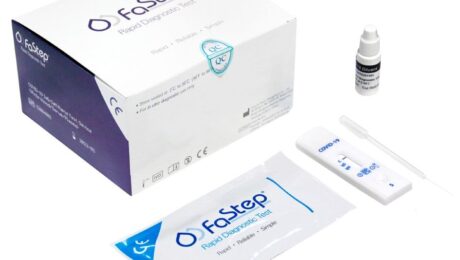Type 1 vs Type 2 Diabetes – What’s the difference?
Diabetes is a disease that happens when your body has trouble with insulin. Insulin is a hormone that regulates the sugar in your blood. When you have diabetes, you are at higher risk of infections, kidney problems, and heart disease. It is important to understand the difference between the two types of diabetes.
Type 1 Diabetes is when your body does not produce insulin. When your body does not produce insulin, there is nothing that is regulating the sugar levels in your blood. This can increase your chance of future problems. Most patients who are Type 1 diabetics will benefit from insulin injections. Most people are diagnosed with Type 1 diabetes at a young age. This type of diabetes is not preventable.
Type 2 Diabetes is when your body does not respond to the insulin that is being made. This is the most common type of diabetes and it happens mostly in adults. Most of these patients will benefit from exercise, diet, and medication. These medications typically will increase insulin response or remove sugar out of the blood. Diet and exercise help by increasing response as well. This type of diabetes is usually preventable and treatable.
By understanding the difference between both types of diabetes, it may help you to understand how to prevent it. If you have diabetes, it is important to take your medication on time. It is also important to schedule annual check-ups to make sure there are no additional problems.
Blood Pressure Meds – when should I take them?
This is a very good question. Usually blood pressure is the lowest while you sleep. Blood pressure is usually highest in the mornings and throughout the day. It makes sense to take blood pressure medication in the morning then, right? Not necessarily!
New studies have found that this may not be the case. They show that night-time blood pressure readings are the best estimators of total heart health. This means by controlling your blood pressure at night, you may have overall better results. One large study found a decrease in heart attacks in patients who took their blood pressure medication at night.
It is important that you speak to your doctor before making any changes. Some people may not benefit from taking them at night. This is sometimes true for those with diabetes or kidney disease. Also, some blood pressure medications like diuretics, or “water pills” should not be taken at night. Taking water pills at night could force you to wake up having to use the bathroom. So be sure to talk to your doctor about it first.
If you take multiple medications for blood pressure, just be sure to talk to your doctor. You may benefit from taking one or more of them at night.
- Published in Health
Presumed Positive COVID Results
There are many different COVID tests on the market. There are rapid tests that take 15 minutes to get your result. There are also tests that get sent to a lab which may take 2-4 days to get your result. The rapid tests are unfortunately not as reliable as the lab tests. The rapid tests do give you a much quicker result though.
If you test negative on a rapid test, you could still have COVID. This is especially true if you have specific symptoms (loss of taste/smell, shortness of breath). We like to call this a “presumed positive.” If you test negative with symptoms it may be necessary to also get a lab test done. The lab test will give you more validation on your results. If you choose to not get the second lab test, it is safe for you to assume you may have COVID based on your specific symptoms. It is important to isolate for 10 total days from the start of your symptoms until you are sure of your result. It is important to realize though that even if your lab test is negative, you are still sick. Always wear your mask in public, and stay home if at all possible.
- Published in Health
COVID Vaccine
COVID-19 is considered a “novel” virus. This means the virus has never been seen before. Therefore, there has been no vaccine yet for it. A vaccine is currently being researched. They are using data from older coronaviruses (SARS and MERS) to help develop the current vaccine.
Vaccine challenges
The vaccine has to be safe. Vaccines are first tested in animals. Then they are tested in humans. Some older coronavirus vaccines (for SARS) were harmful. This is why this is important.
The vaccine has to protect from infection for a long period of time. You can be infected again with the same virus weeks to years later.
The vaccine has to protect older people. People over 50 years old are at high risk for severe COVID-19. Older people do not respond to vaccines as well as younger people.
When will a vaccine be available?
Some vaccines take years to develop. Vaccines have to be both safe AND effective. The FDA is allowing to skip animal safety testing because of how severe COVID-19 is. It is going straight to human testing. This should help speed up the process. This could still take at least 6 months to complete. Vaccine manufacturers then have to make the vaccine. The vaccine then has to be distributed to all healthcare providers in the country to be given to patients.
Who will get the vaccine first?
People will be separated into four groups:
- People who have a high risk of becoming infecting. This will mostly be healthcare workers (doctors, nurses, first responders, etc.)
- People who have a high risk of getting severe COVID-19 and dying from it (old people and already sick people)
- People who are needed for essential jobs. This includes people such as grocery store workers, mail carriers, etc.)
- People who are at high risk of spreading the disease. This includes pretty much everyone else.
What to do in the mean time?
Stay 6 feet away from people. Wear a mask in public. Wash your hands for at least 20 seconds frequently. Do not leave your house if you feel sick or have been with someone who is sick.
- Published in Immunizations
Sharps Disposal
Needles are used to give many different medications. Needles must be disposed in “sharps container”. This container is made from thick plastic with a lid. This will prevent injury. Needles should never be thrown away in the common trash. Keep sharps containers away from children or pets. Syringes, lancets and any other sharp devices should be thrown away in this type of container. You can order these containers from the FDA. They come in big and small sizes.
You can also use containers from home. Empty laundry detergent containers can be used. The container should be thick so that needles cannot penetrate it. Make sure all containers have a lid. The container cannot have leaks. Do not overfill container. Tightly seal container. The container must be labeled as “Sharps biohazard. Do not recycle”.
You should dispose of the sharps container when it is two-thirds full. Do not reuse the sharps container. This can increase the risk of injury. Contact your local authority to learn how to dispose of this container. Some companies can pick up these containers from your home. There are drop off sites as well. For St. Louis disposal call Medical Waste Pros at (314) 658-9351. For all other information call 1-800-643-1643.

http://www.diabetesforecast.org/2014/07-jul/make-your-own-sharps.html
- Published in Health
Prescription Opioids
Opioids are a drugs that are used to for pain. Some examples include Oxycodone, Hydrocodone, Morphine, and Hydromorphone. These drugs have become more and more popular. Use has increased with over 191 million Americans using them. Some side effects:
- Constipation
- Upset stomach, vomiting, dry mouth
- Sleepiness
- Dizziness
- Confusion
- Itching
- sweating
A big risk in taking these drugs is becoming addicted. More than 11.5 million Americans are addicted to these drugs. Use of these drugs can lead to what is called “overdose (OD)”. An OD is when you stop breathing. These drugs can cause you to slow or stop your breathing which can cause you to die. This can be on purpose or accidental. These are some OD symptoms to look out for:

Narcan and Naloxone can help someone with an overdose. They undo the effects of opioids. Naloxone is given by injecting the person with a needle. Narcan is given by spraying a dose into the person’s nose. These drugs can save a person’s life. Missouri allows you to get these medications. You do not need a prescription.
Call 911 immediately if you believe you or someone you know is having an OD. The sooner you notice an OD, the better. It is always important to talk with your doctor or pharmacist about the risks of taking opioids.
Do masks prevent COVID-19?
There is conflicting information on whether or not masks can help prevent COVID-19. Studies have shown that wearing a cloth mask lowers the risk of getting COVID. This is in comparison to not wearing a mask. Cloth masks are almost as good as medical masks in reducing the spread of infection.
You can use cloth masks, disposable paper masks, surgical masks, N95 masks, and other types of masks with filters. Do not use holiday masks, celebration masks, costume masks, skincare masks, sleep masks, or decorative masks. You can use cloth to make masks or bandanas. It is better to wear masks rated to filter out particles, such as N95 masks.
Masks work by blocking the spread of particles and germs when you breathe or speak. They can also slow the spread of germs when you breathe. Masks do not fully stop you from getting COVID-19. Germs can still flow up and through any gaps in between your skin and the mask. It is better to wear a mask than to not wear one. There will be fewer germs that can spread. Health professionals highly encourage that you wear a mask when you go outside or to a public place. Remember to wash or change your mask often.
-APPE Student Class of 2021
COVID-19 testing
There are many types of tests for COVID-19. The two main types are a viral test and an antibody test. The viral test tells you if you have the virus. The antibody test tells you if you had a past or current infection. Antibodies are small proteins that your immune cells make. They bind to markers called antigens that are on germs or foreign objects.
The main kind of test is the nasal swab PCR test. This test involves swabbing a sample of the back inside of your nostrils. The PCR machine makes hundreds of thousands of copies of the DNA in the sample. The tester then checks the sample for viral DNA.
Other tests involve testing for a COVID antigen. In this test, the patient places a sample of blood onto a trip of paper that has antibodies. If the antibodies bind to the antigen, the paper strip changes colors. This color change means the sample is positive for the antigen. Antibody tests use a blood sample to see if there are antibodies to the virus. Quick testing uses a test strip to check for a color change. Many other tests involve blood or other fluids. Positive results will show a color change.
PCR tests are the most accurate and effective, but take a lot of time. Antigen and antibody tests are much faster and are almost as accurate. You should get the test that is the best fit for you. It is important that you get the test if you feel you have COVID symptoms or were exposed to someone with COVID.
-APPE Student Class of 2021
Vitamin D and COVID-19
With COVID-19 still ongoing, any treatment that can prevent COVID helps. Vitamin D has a role in many health conditions. This includes bone health, lung diseases, and depression. There are reports that claim the lack of vitamin D leads to a higher risk for COVID.
The data is still not clear. Lack of vitamin D was found to increase risk of ARDS, a lung condition. It found a link between lower vitamin D, higher death rates, and chronic diseases. One review looked at stopping an overactive immune response to COVID. It suggests that vitamin D may stop the inflammation that leads to worse outcomes. Some studies suggest lack of vitamin D is linked to higher rates of COVID and lung disease. Some found the link was not strong enough to suggest a benefit. Others show no link after removing factors that can bias results.
Besides COVID, vitamin D also helps with bone health. Vitamin D can reduce the risk of bone fractures. Lack of vitamin D can lead to weak bones and falls. It can also lead to depression and higher rates of illness. With more people staying inside, it is important to get enough vitamin D. There is an overall benefit for vitamin D even if there is not enough proof that it helps with COVID.
-APPE Student Class of 2021
When to get the flu shot?
There’s a bigger push to get the flu shot this year. Some patients may want to know when is the best time to get flu shots. Flu season doesn’t start until much later in the year. It may help to know if there are any reasons to get it earlier.
When is flu season?
The most common time for flu season to start is December or early January. It can start as early as October. Peak flu was in January or later for 3/4 flu seasons from 1982–2018. In the Saint Louis area, peak flu for 2016–2017 and 2019–2020 was in early February. It started around the last week of December or 1st week of January. The 2017–2018 season started in the 1st week of December. It peaked around the 1st week of January.
How well do flu shots work?
Early flu shots in July and early August work less well. From 2011–2015, the H3N2 flu shot did not work as well by 7% for each month after its peak. The H1N1 flu shot worked less well by 6-11% every month. A study found that each 28 days after getting the shot, patients were 16% more likely to still get the flu. For example, some patients may get the flu shot 21 weeks before flu season. This means they are more than twice as likely to still get the flu. This is compared to patients who get the flu shot 6 weeks before flu season. Another study looked at the 2011–2012 flu shot. In patients over 65, it worked only 85% as well after 3 months. It mostly did not work after more than 4 months.
Recommendations
Most people 6 months and older should get the flu shot. The CDC says you should get it in September or October before flu season. July or August is too early. There is a chance that it will not work later. Kids from 6 months to 8 years who are getting it for the 1st time should get it when it is ready. They need to get 2 flu shots. They should get the 2nd shot 4 weeks after the 1st. It is better to get the shot than to not get it. With COVID-19 this year, it is more important than ever to get the flu shot. It will lower the chance of going to the hospital or getting sick.
-APPE Student Class of 2021
- Published in Health, Immunizations, Pharmacy, Wellness
- 1
- 2


